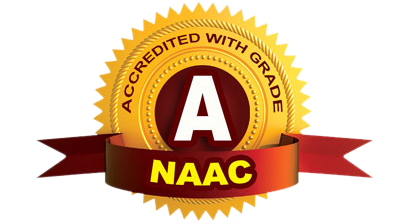About ECE
(Note: This branch is being discontinued from AY 2020-21) ECE is one of the most significant branches of engineering which has always been in demand. Our department is known for its efficiency and holds a strong reputation. The department aims primarily at excellence not only in theoretical but also in Experimental Research in Microwaves, Antennas, VLSI, Signal Processing, Communications, Embedded Systems etc. This department has well qualified and proficient faculty members with a wide range of experience in academics as well as the industry.The ECE finishing school in KMIT offers specialized trainings based on the requirement of the Industry.The department has registered with the professional bodies like IETE ,IEEE , ISTE memberships which help our students to get the perspective of the electronics world.
Courses Offered
| S. No. | Name of the Degree | Course | Total Intake | Management Seats/NRI Seats | Convenor seats |
|---|---|---|---|---|---|
| 1 | B.Tech | Electronics and Communication Engineering (ECE) | 120 | 36 | 84 |
Vision of the Department
To be a leader in providing world class quality education, technology development and research in the field of Electronics & Instrumentation Engineering for the benefit of Industry and society.
Mission of the Department
Establish a unique learning environment to enable the students to face the challenges of the Electronics and Communication Engineering field.
Promote the establishment of centers of excellence in niche technology areas to nurture the spirit of innovation and creativity among faculty and students.
Provide ethical and value based education by promoting activities addressing the societal needs.
Enable students to develop skills to solve complex technological problems of current times and also provide a framework for promoting collaborative and multidisciplinary activities
Program Educational Objectives (PEOs)
-
Practice the ethics of their profession consistent with a sense of social responsibility and develop their engineering design, problem –solving skills and aptitude for innovations as they work individually and in multi disciplinary teams.
Communicate effectively and manage resources skill fully as members and leaders of the profession.
Be receptive to new technologies and attain professional competence through lifelong learning such as continuous learning, advanced degrees, publications and other professional activities.
Programme Outcomes (POs)
Engineering Graduates of will be able to:
Engineering Knowledge: Apply the knowledge of mathematics, science, engineering fundamentals, and an engineering specialization to the solution of complex engineering problems.
Problem Analysis:Identify, formulate, review research literature, and analyze complex engineering problems reaching substantiated conclusions using first principles of mathematics, natural sciences, and engineering sciences.
Design/Development of solutions: Design solutions for complex engineering problems and design system components or processes that meet the specified needs with appropriate consideration for the public health and safety, and the cultural, societal, and environmental considerations.
Conduct Investigations of Complex problems: Use research-based knowledge and research methods including design of experiments, analysis and interpretation of data, and synthesis of the information to provide valid conclusions.
Modern Tool Usage: Create, select, and apply appropriate techniques, resources, and modern engineering and IT tools including prediction and modelling to complex engineering activities with an understanding of the limitations.
The Engineer and Society:Apply reasoning informed by the contextual knowledge to assess societal, health, safety, legal and cultural issues and the consequent responsibilities relevant to the professional engineering practice.
Environment and Sustainability:Understand the impact of the professional engineering solutions in societal and environmental contexts, and demonstrate the knowledge of, and need for sustainable development.
Ethics: Apply ethical principles and commit to professional ethics and responsibilities and norms of the engineering practice.
Individual and Team Work: Function effectively as an individual, and as a member or leader in diverse teams, and in multidisciplinary settings.
Communication: Communicate effectively on complex engineering activities with the engineering community and with society at large, such as, being able to comprehend and write effective reports and design documentation, make effective presentations, and give and receive clear instructions.
Project Management and Finance: Demonstrate knowledge and understanding of the engineering and management principles and apply these to one’s own work, as a member and leader in a team, to manage projects and in multidisciplinary environments.
Life-Long Learning: Recognize the need for, and have the preparation and ability to engage in independent and life-long learning in the broadest context of technological change.
List of Program Specific Outcome's (PSO's)
-
Professional Skills: An ability to understand the basic concepts in Electronics & Communication Engineering and to apply them to various areas, like Electronics, Communications, Signal processing, VLSI, Embedded systems etc., in the design and implementation of complex systems
Problem-Solving Skills: An ability to solve complex Electronics and communication Engineering problems, using latest hardware and software tools, along with analytical skills to arrive cost effective and appropriate solutions.






